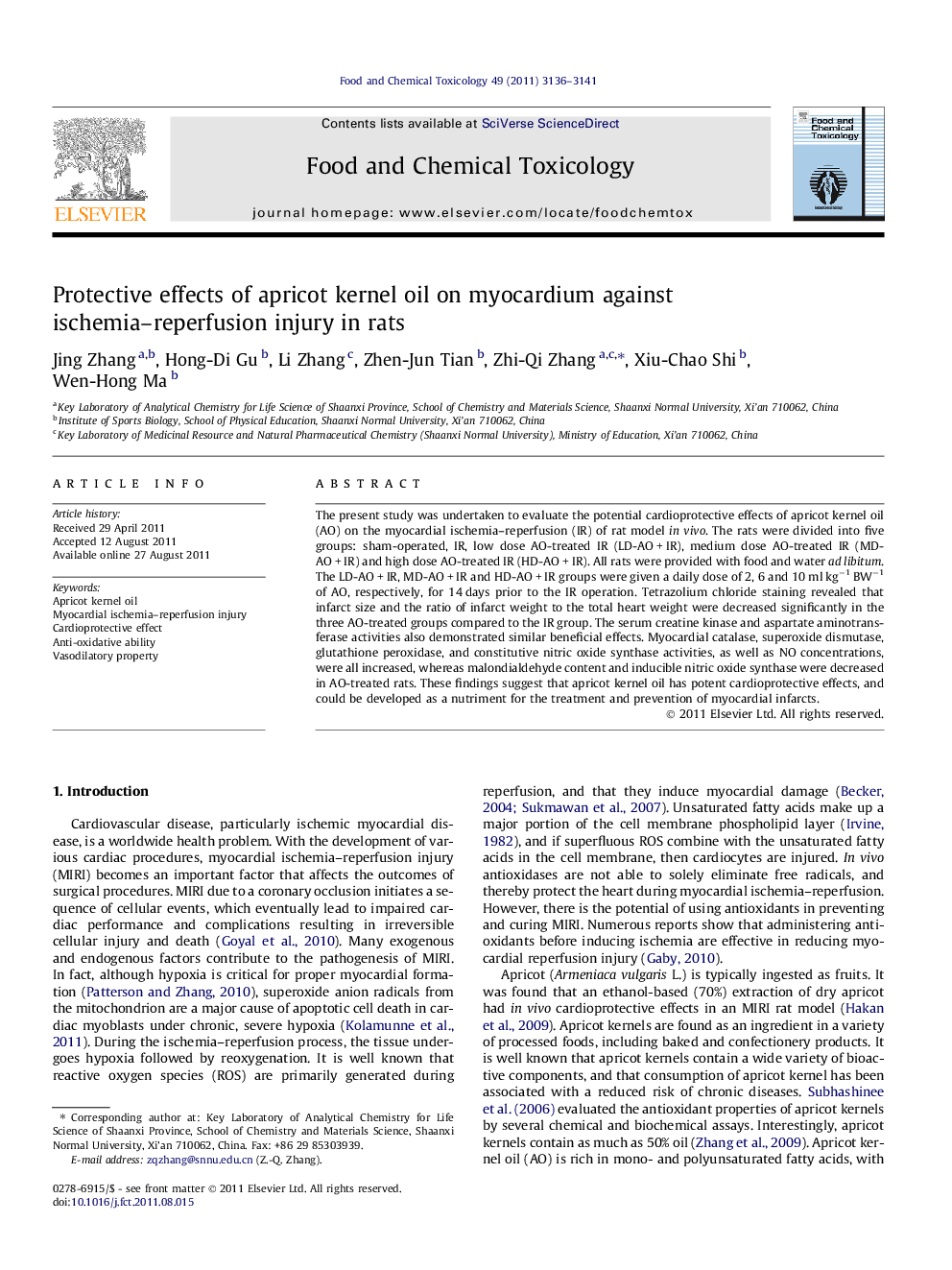| Article ID | Journal | Published Year | Pages | File Type |
|---|---|---|---|---|
| 5853222 | Food and Chemical Toxicology | 2011 | 6 Pages |
The present study was undertaken to evaluate the potential cardioprotective effects of apricot kernel oil (AO) on the myocardial ischemia-reperfusion (IR) of rat model in vivo. The rats were divided into five groups: sham-operated, IR, low dose AO-treated IR (LD-AO + IR), medium dose AO-treated IR (MD-AO + IR) and high dose AO-treated IR (HD-AO + IR). All rats were provided with food and water ad libitum. The LD-AO + IR, MD-AO + IR and HD-AO + IR groups were given a daily dose of 2, 6 and 10 ml kgâ1 BWâ1 of AO, respectively, for 14 days prior to the IR operation. Tetrazolium chloride staining revealed that infarct size and the ratio of infarct weight to the total heart weight were decreased significantly in the three AO-treated groups compared to the IR group. The serum creatine kinase and aspartate aminotransferase activities also demonstrated similar beneficial effects. Myocardial catalase, superoxide dismutase, glutathione peroxidase, and constitutive nitric oxide synthase activities, as well as NO concentrations, were all increased, whereas malondialdehyde content and inducible nitric oxide synthase were decreased in AO-treated rats. These findings suggest that apricot kernel oil has potent cardioprotective effects, and could be developed as a nutriment for the treatment and prevention of myocardial infarcts.
⺠Apricot kernel oil could significantly decrease infarct size against MIRI. ⺠Apricot kernel oil could raise the activity of antioxidase. ⺠Apricot kernel oil could enhance the anti-hypoxia capability of the heart. ⺠Apricot kernel oil may have the vasodilator effect through the NO pathway.
